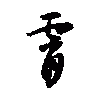Stocks and Stumps
I'm working through Heisig's RTK. I sometimes get worried that learning Japanese-oriented keywords will throw off my Chinese learning. But I know that I will need to learn both anyways. And sometimes, I learn something unexpected about English etymology.
Example:
Heisig binds the kanji '株' to the keyword 'stock'. His story clarifies that he means 'stock' as in 'stock exchange'.
Now, looking in a Japanese dictionary, we see that ‘株’ can also mean 'stump' as in 'tree stump'.
Looking in a Chinese dict I find that ‘株’ only has the 'tree stump' meaning.
So how are stocks and stumps connected? When we look up 'stock' in Webster, the first sense (albeit an archaic one) is "stump". Well I'll be darned!
Now what happened here? Did the Japanese choose 株 to represent 'stock' as in 'stock exchange' because of the English etymology? Or was this an independent but parallel innovation?


2 Comments
Recommended Comments